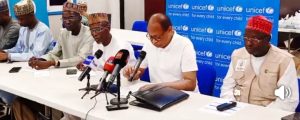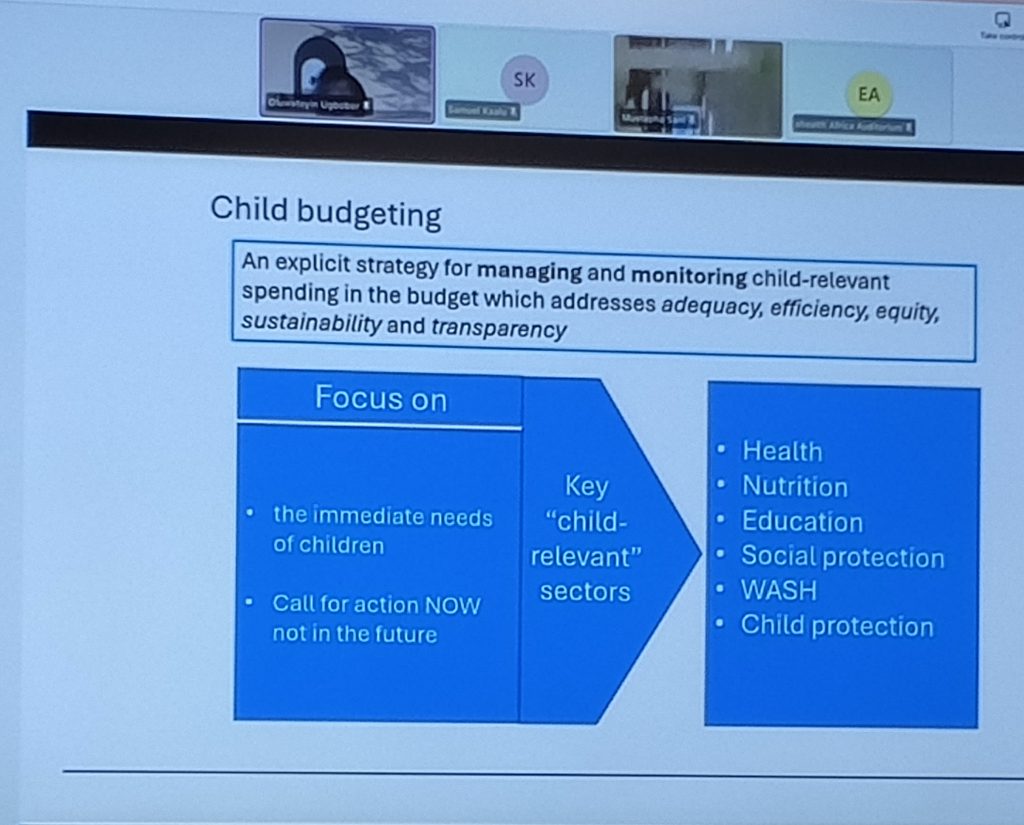The united nations childrens fund UNICEF has called on the Kano State Government KNSG for Increased Investment in Health, Education, and Nutrition for Children.
Speaking at a Media Dialogue on Child-Sensitive Budgeting and Planning,the chief of Field office UNICEF Kano Mr Rahma Rihood Mohammed Farah highlighted alarming statistics on child welfare in Kano State, stressing the need for urgent action.
UNICEF, KNSG, CSOs Push for Accountability in Child Welfare
He noted that Kano is home to over 6.5 million children under the age of 18, many of whom face severe challenges ranging from high child mortality and malnutrition to poor access to education and healthcare.
The chief of filed office said, according to MICS 2021 143,000 children under five die before reaching their fifth birthday, while nearly 2.9 million children are not fully immunized.
“Additionally, 4 million children live in multidimensional poverty, and over 2.3 million school-aged children are out of school”
UNICEF Urges Jigawa State to Adopt Child-Sensitive Budgeting
Mr Farah emphasized that despite ongoing efforts, the social sector in Kano remains underfunded, with fluctuating allocations for health, education, and child protection services.

He urged that investments in children should be seen as strategic and essential not charitable arguing that such investments would help break cycles of poverty, build resilience, and drive long-term economic growth.
“Child-Sensitive Budgeting (CSB) as a strategic process that goes beyond mere line items for schools and clinics”
He also outlined critical gaps in Kano’s budgeting process, including invisibility of child-related allocations, underfunding of essential programs like nutrition, inefficiencies in service delivery, and lack of coordination among ministries.
Earlier in his remarks, the deputy speaker Kano state house of assembly KNHA Muhammad Bello Butu Butu expressed the house commitment to ensuring full implementation of budgetary allocations to ministries, departments, and agencies (MDAs), with the aim of delivering the dividends of democracy to the people.
He noted that many MDAs in the state are falling short in implementing their budgets.
Butu Butu explained that while the state government is making significant efforts to release funds, challenges persist due to the failure of some agency heads to follow up and ensure the actual disbursement and utilization of allocated resources.
“This current Assembly enjoys a cordial relationship with the executive, and there’s full cooperation in terms of budgetary allocations,” he said. “However, some MDA heads are not doing enough to access and utilize the funds appropriated to them.”
He further highlighted that the state currently allocates about 35% of its annual budget to the education and health sectors, demonstrating its commitment to improving the well-being of children and removing them from the streets.
Paradigm News reports that,Stakeholders at the dialogue issued a call to action, urging the Kano State Government to institutionalize child-sensitive budgeting, increase funding for child-focused initiatives, and enhance transparency and accountability in budget execution.





